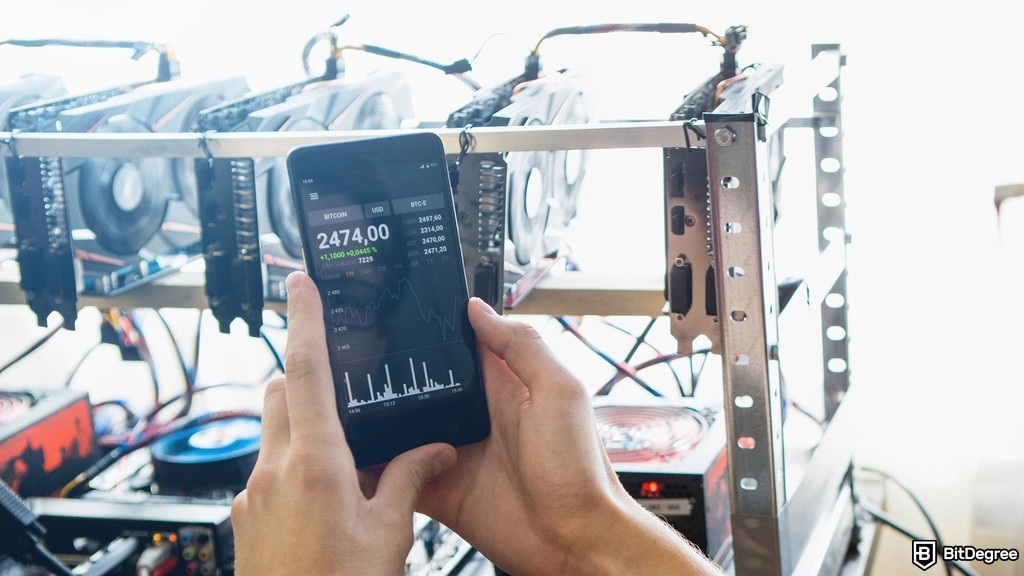The Unexpected Slip of Uniswap (UNI) Below $6.7: A Potential Extended Downturn
Uniswap (UNI), the popular decentralized finance (DeFi) protocol built on Ethereum, has recently experienced a significant setback as its price has dipped below the crucial $6.7 support level. This downturn comes amidst a rising tide of selling pressure, which may indicate that the bulls are losing their grip on the market.
Understanding the Uniswap (UNI) Price Drop
The price of Uniswap (UNI) has been on a rollercoaster ride in recent months, experiencing sharp increases followed by sudden declines. This latest price drop below $6.7 is particularly concerning, as this level has historically acted as a strong support for the token. The selling pressure that has caused this decline may be due to a number of factors.
Factors Contributing to the Uniswap (UNI) Price Drop
- Market Sentiment: The overall market sentiment towards cryptocurrencies has been bearish in recent weeks, with many investors taking profits and selling their holdings. This selling pressure has affected Uniswap (UNI) and other DeFi tokens, causing their prices to decline.
- Regulatory Scrutiny: There has been increased regulatory scrutiny of the DeFi space in recent months, with some governments expressing concerns about the lack of transparency and potential for fraud or money laundering. This uncertainty may be contributing to the selling pressure on Uniswap (UNI) and other DeFi tokens.
- Technical Analysis: From a technical perspective, the price of Uniswap (UNI) has formed a bearish pattern on the charts, with several key indicators suggesting that further declines are likely. These include the Relative Strength Index (RSI) and Moving Average Convergence Divergence (MACD) indicators, which are both signaling that the token is oversold and due for a correction.
The Impact of the Uniswap (UNI) Price Drop on Individual Investors
For individual investors who hold Uniswap (UNI) tokens, this price drop may be a cause for concern. Those who have recently purchased the token at a higher price may be looking at significant paper losses, while those who bought in at lower prices may be considering selling to minimize their losses. However, it’s important to remember that the price of a cryptocurrency is just one factor to consider when evaluating its long-term potential. Other factors, such as the underlying technology, community support, and partnerships, can also play a role in determining the token’s future value.
The Impact of the Uniswap (UNI) Price Drop on the World
The price drop of Uniswap (UNI) and other DeFi tokens may have wider implications for the world of finance and technology. DeFi is still a relatively new and experimental space, and the price volatility of its tokens can make it a risky investment for some. However, it also has the potential to disrupt traditional financial systems and democratize access to financial services. The ongoing price volatility of DeFi tokens may make some investors wary, but it also presents opportunities for those who are willing to take on the risk.
Conclusion
The recent price drop of Uniswap (UNI) below the crucial $6.7 support level is a cause for concern for investors in the DeFi space. The selling pressure that has caused this decline may be due to a combination of market sentiment, regulatory scrutiny, and technical analysis. For individual investors, this price drop may mean significant paper losses, while for the world, it may have wider implications for the future of finance and technology. However, it’s important to remember that the price of a cryptocurrency is just one factor to consider when evaluating its long-term potential. Other factors, such as the underlying technology, community support, and partnerships, can also play a role in determining the token’s future value.
As always, it’s important for investors to do their own research and consult with financial advisors before making any investment decisions. The cryptocurrency market is known for its volatility, and prices can change rapidly. Stay informed and stay cautious.





